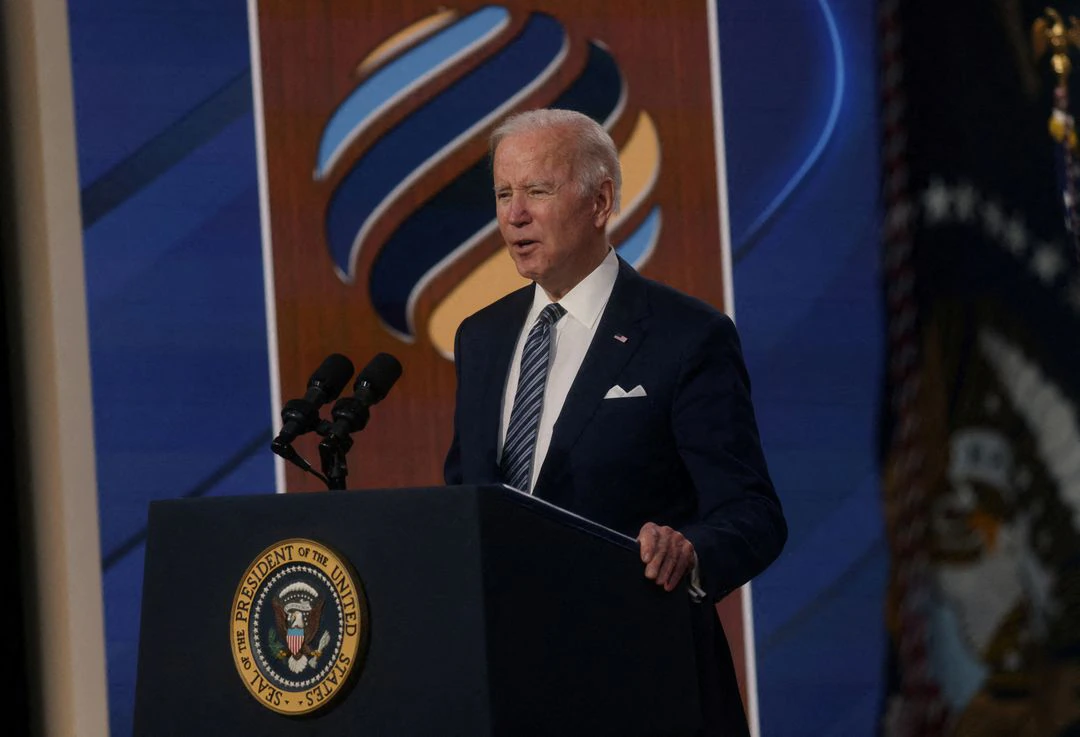Republicans argue Biden’s $1.75 trillion social plan would add to deficit
Washington,(Reuters) – Republicans in the U.S. Congress attacked Democratic President Joe Biden’s proposed $1.75 trillion social bill on Friday, releasing a nonpartisan estimate that said it could increase the federal deficit by $3 trillion over a decade if its programs are made permanent.
Republican Senator Lindsey Graham had asked the Congressional Budget Office to calculate the bill’s effects on the deficit if programs — including a child tax credit and free preschool for all 3- and 4-year-olds — would continue over 10 years, rather than phasing out sooner as proposed by Democrats.
Republicans had earlier criticized the phaseouts as maneuvers to underestimate the bill’s cost, and contend the bill would worsen inflation. Consumer prices on Friday notched their biggest gain since 1982.
The new forecast comes a month after the CBO released an estimate saying the bill that has passed the House of Representatives would increase federal budget deficits by $367 billion over 10 years.
That does not take into account some $207 billion in revenue that could be raised by improved tax enforcement, the CBO estimates. This, however, is only about half what the Biden administration says better tax enforcement could raise.
“Nobody believes these programs are going to end. Democrats want them to go on,” Graham told reporters. “I am begging some reasonable Democrats out there to stop this train.”
Democrats scorned the attack, which House Speaker Nancy Pelosi called a “phony score of an imaginary bill.” Senate Majority Leader Chuck Schumer said the existing proposal is paid for and any future extensions would be too.
The bill calls for the child tax cut to expire after one year, with free preschool and child-care subsidies expiring after six years.
Amid a flurry of activity in Congress that saw lawmakers avert a government shutdown and take the first steps toward raising the federal government’s $28.9 trillion debt limit, thus averting an unprecedented default, there has been little visible progress on passing Biden’s $1.75 trillion Build Back Better bill.
That package, the heart of Biden’s social and climate agenda, would provide free preschool for all 3- and 4-year-olds, boost coverage of home-care costs for the elderly and disabled, significantly lower the cost of some prescription drugs such as insulin, and expand affordable housing programs.
Two Democratic senators, Joe Manchin and Kyrsten Sinema, have not committed to supporting Build Back Better, and both parties are lobbying them for support. Every Senate Democrat’s vote will be needed if the party is to pass the measure without the backing of the chamber’s Republicans, who unanimously oppose it.
Manchin in particular has expressed concern about large amounts of spending and their possible inflationary impact, and at one point last month accused his fellow Democrats of playing “shell games” with the program’s cost. Biden told reporters on Friday that he’d be talking to Manchin next week.
Treasury Secretary Janet Yellen argued this week that it is inappropriate to judge the social policy bill based on assumptions concerning future acts of Congress.
“This analysis is of a bill that the House did not pass, the Senate is not considering, and the President – who has committed to paying for permanent investment – would not sign,” she said in a memo to lawmakers seen by Reuters.
The surge in inflation this year to a near four-decade high as of November has become a favorite club by Republicans for bashing Biden’s ambitious spending proposals.
There is little hard evidence that the plan – spread out over a decade – would have the same impact on elevating consumer demand and thus inflation as previous pandemic-relief spending bulges under both Biden and his predecessor, Republican Donald Trump.
Still, inflation is now the central economic concern voiced by American consumers, far more so than unemployment, which could make Democrats’ jobs harder in selling what Biden has billed as a “blue-collar jobs bill.”
“When directly asked whether inflation or unemployment was the more serious problem facing the nation, 76% selected inflation while just 21% selected unemployment,” Richard Curtin, director of the University of Michigan’s widely followed Consumer Sentiment Index said on Friday in a statement accompanying the series’ latest reading for early December.



